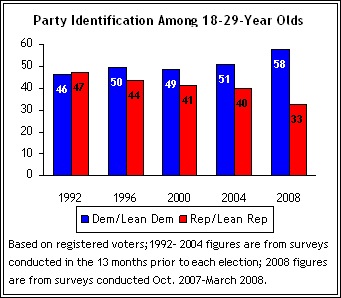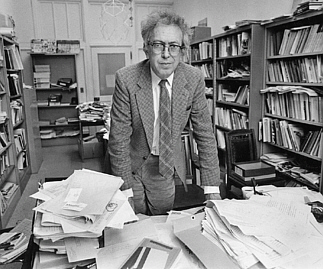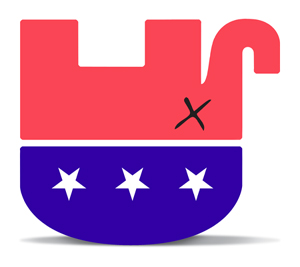
The conventional wisdom, now shrieking around the globe like a Category Five hurricane, is that on November 2nd the Republicans will sweep to victory on a tsunami of voter discontent: a 40, 50, 60 seat gain in the House alone! Pick a number. Any number. They’ve all been cited.
But there are indications to the contrary that seem to be pointedly overlooked — which is a recognizable pattern of behavior once the mainstream media has latched onto a narrative it can credibly live with.
First, Obama’s approval ratings are up sharply as he’s worked the campaign trail, and are in fact 12 points higher than Reagan’s were at the same point in his presidency.
Second, there is a new Newsweek poll suggesting that the Democrats are ahead on a generic ballot involving likely voters. Many are dismissing the poll as an outlier, and perhaps they’re right to, but here’s the rub: of all the recent polls that feed the frenzy of foregone conclusion, only the Newsweek poll includes a sample of cell phone-only users.
It’s no secret what the significance of this factor is, even though it is largely ignored. Those who use cell phones exclusively tend to be young, urban and liberal. If the Newsweek poll turns out to be in play, then it may help to expose a deeply entrenched polling bias that the purveyors of conventional wisdom seem unwilling to address in any consistent way. It’s a kind of low-grade, passive-aggressive voter suppression of a key demographic group, which is systematically excluded from the polling data because enough people have decided it doesn’t really count. Here’s hoping these young voters overturn the conventional wisdom and reshape it into something that resembles the actual will of the people and not just the wildly careening spin of corporate interests.





